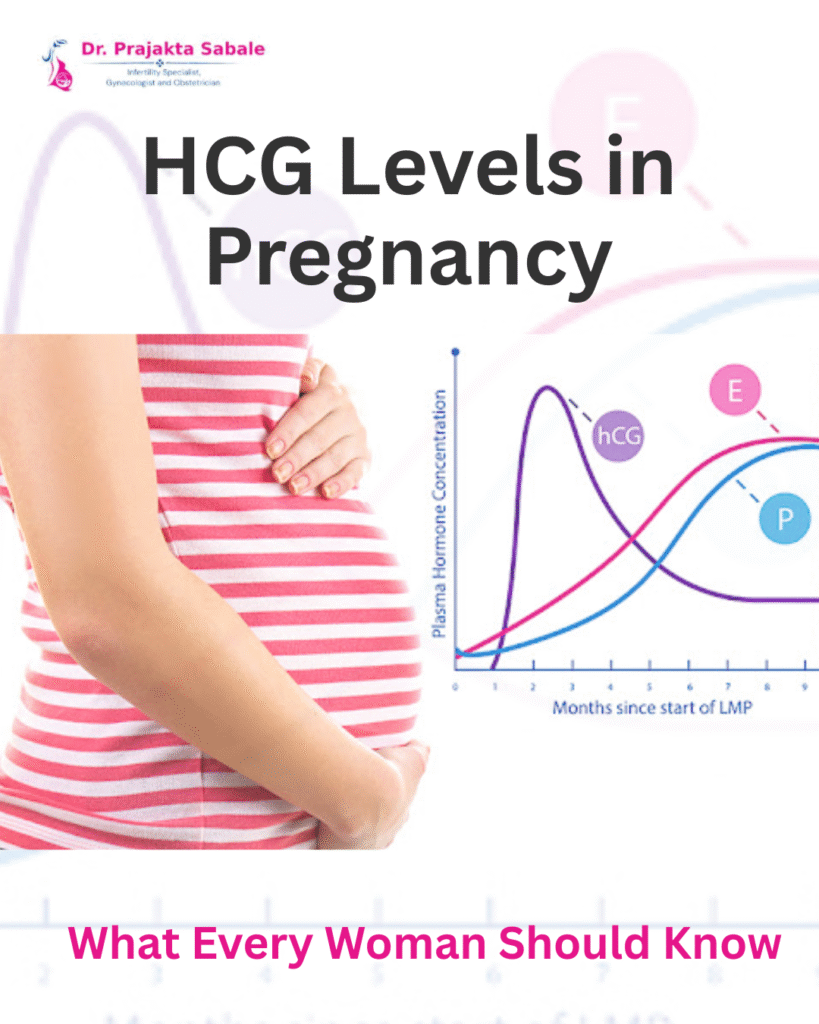Pregnancy brings a lot of joy but also many questions — especially in the early weeks. One of the most important markers doctors look at is hCG (human chorionic gonadotropin), commonly known as the pregnancy hormone. Understanding hCG levels can help you know what’s happening in your body and when to seek medical advice.
What are hCG Levels?
-
hCG is a hormone produced by the placenta soon after implantation.
-
It supports the pregnancy by helping the body maintain progesterone levels.
-
It is the hormone detected in both urine pregnancy tests and blood tests.
What You Need to Know About Your hCG Levels
hCG, or the “pregnancy hormone,” is one of the first signs your body gives after conception. It’s the hormone that pregnancy tests detect, and it plays a vital role in supporting early pregnancy. Many women get worried when they hear about hCG numbers, but here’s what you really need to know:
- hCG starts rising soon after the embryo implants in the uterus.
- In a healthy pregnancy, the level usually doubles every 2–3 days during the first weeks.
- The exact number is not as important as the pattern of increase over time.
- In early pregnancy, hCG usually doubles every 48–72 hours
- Because every woman’s body is different, “normal” can look like a wide range.
If hCG levels rise well, it’s usually a good sign that the pregnancy is developing as expected. If they rise slowly, don’t rise at all, or start to fall, doctors may look more closely for possible concerns like an ectopic pregnancy or miscarriage. This is why a single test result doesn’t give all the answers — sometimes a repeat test after 48–72 hours is needed.
Guideline to hCG Levels in Weeks During Pregnancy
Here’s a general reference (values in mIU/mL):
- 3 weeks: 5 – 50
- 4 weeks: 5 – 426
- 5 weeks: 18 – 7,340
- 6 weeks: 1,080 – 56,500
- 7–8 weeks: 7,650 – 229,000
- 9–12 weeks: 25,700 – 288,000
- 13–16 weeks: 13,300 – 254,000
- 17–24 weeks: 4,060 – 165,400
- 25–40 weeks: 3,640 – 117,000
hCG peaks around 10–12 weeks and then slowly decreases.

What Does a Low hCG Level Mean?
- Could indicate early miscarriage or ectopic pregnancy.
- Sometimes just means testing was done too early.
- Requires repeat testing to confirm the trend.
Is a High hCG Level a Bad Thing?
Not always. High hCG can mean:
- Multiple pregnancy (twins or triplets).
- Wrong calculation of pregnancy weeks.
- In rare cases, molar pregnancy or other complications.
Should I Check My hCG Level Regularly?
-
Routine hCG testing is not needed for every pregnant woman.
-
Doctors may recommend it if there are concerns like:
-
Bleeding in early pregnancy
-
Previous history of miscarriage
-
Fertility treatments (like IVF)
-
What Can I Expect After a Pregnancy Loss?
- hCG levels gradually decline after miscarriage or pregnancy loss.
- It may take a few weeks for levels to return to non-pregnant range (<5 mIU/mL).
- Doctors may monitor levels to ensure no retained pregnancy tissue remains.
What Can Interfere With My hCG Levels?
- Medications containing hCG (used in fertility treatment).
- Lab errors or testing too early.
- Medical conditions like molar pregnancy.
Conclusion
hCG is an important hormone that provides early insight into pregnancy health. While numbers can vary widely, the pattern of rise or fall is what doctors monitor closely. If you are concerned about your hCG levels or pregnancy progress, always consult a qualified gynecologist.
For expert guidance and compassionate care, you can consult Dr. Prajakta Sabale Gynecologist in Hinjewadi for personalized advice on pregnancy and fertility care.

